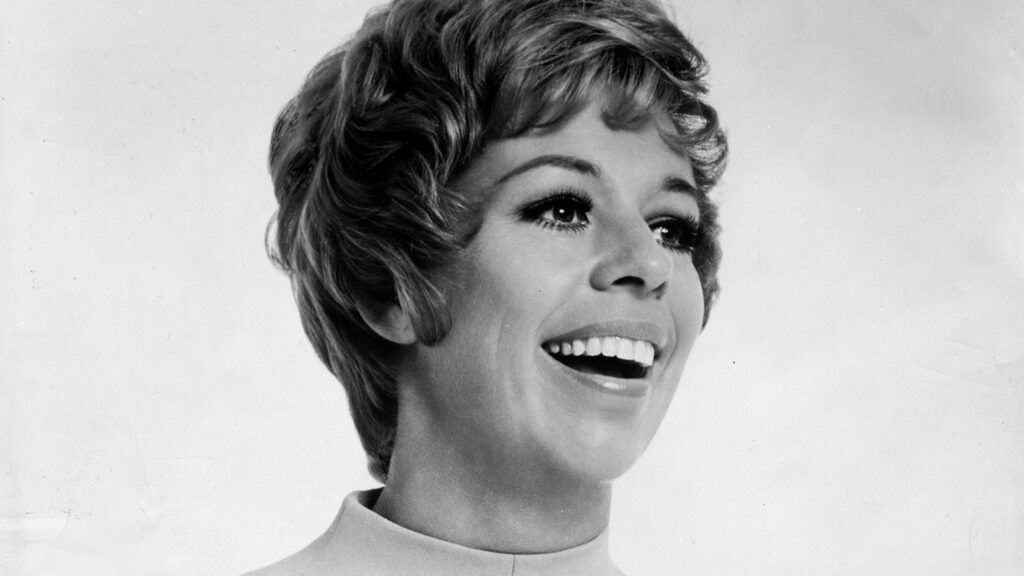My career—TV, stage, movies, all of it—was founded on a strange event that was to be a deep mystery to me for years. Only after my life had changed drastically did I begin to solve the puzzle I was confronted with one long-ago June evening in California.
In those days I was one of a group of stage-struck drama-school students at UCLA, living on hopes and dreams and not much else.
As school ended, one of our professors was leaving for a vacation in Europe. He had a house near San Diego, and a bon voyage party was planned. It was suggested that some of us drama students might drive down and entertain his supper guests with scenes from musical comedies.
READ MORE: STEVE ALLEN ON THE VALUE OF GRATITUDE
Nine of us agreed to go. One of the boys and I had rehearsed a scene from Annie Get Your Gun, I remember, and that was our part of the program. Everything went well. The guests seemed to enjoy our singing, and we enjoyed it, too.
After our performance, supper was announced. I was standing at the buffet when a man I had never seen before spoke to me pleasantly. He said he had admired our performance. Then he asked me what I intended to do with my life.
I told him that I hoped to go to New York some day and make a career for myself on the stage. When he asked what was stopping me, I told him truthfully that I barely had enough money to get back to Los Angeles, let alone New York.
I might have added, but didn’t, that at times my grandmother, my mother, my sister and I had been on welfare. The man smiled and said that he would be happy to lend me the money to go to New York. A thousand dollars, he added, should be enough to get me started.
Well, in those days I was pretty innocent, but not that innocent. So I refused his offer politely. He went away, but in a few moments he was back with a pleasant-faced lady whom he introduced as his wife. Then he made his offer all over again.
He was quite serious, he said. There were only three conditions. First, if I did meet with success, I was to repay the loan without interest in five years. Next, I was never to reveal his identity to anyone.
Finally, if I accepted his offer, I was eventually to pass the kindness along, to help some other person in similar circumstances when I was able to do so.
FOR MORE INSPIRING STORIES, SUBSCRIBE TO GUIDEPOSTS!
He told me to think it over and telephone him when I got back to Los Angeles. He added that he was prepared to make a similar offer to my partner in the scene from Annie Get Your Gun, and he gave me his telephone number.
The next day, half convinced I had dreamed the whole thing, I called the number. I was told that if I had decided to accept the conditions, I could drive down on Monday morning and pick up my check.
Still unbelieving, I told my mother and grandmother. Their reaction, not surprisingly, was to urge me strongly not to have anything to do with my mysterious benefactor.
But somehow I was convinced that the man was sincere, and I believed, furthermore, that the good Lord was giving me, Carol Burnett, a strong and unmistakable push. I was supposed to accept the offer. I was being guided. And if I didn’t go, I would regret it for the rest of my life.
At sun-up on Monday morning my partner and I were on the road. We drove for three hours. At nine o’clock, we were at the man’s office. We had to wait perhaps half an hour—and believe me, that was the longest half hour of my life! But finally we were ushered in.
Our friend was crisp, serious, business-like. He reminded us of the conditions, especially the one about not revealing his identity. Then he had his secretary bring in the checks. I watched as he signed them. I had never seen so many beautiful zeros in my life.
We tried to thank him, but he just smiled and ushered us out. When we came to the car, still dazed, we realized we didn’t have enough gasoline to get back to Los Angeles—and not enough cash to buy any.
We had to go to a bank, present one of the $1,000 checks, then wait while the astonished bank officials telephoned our friend’s office to make sure that we weren’t a pair of international forgers. But finally they did cash it for us.
Back in Los Angeles, I wasted no time. I spent a little of the money on a visit to the dentist where I had two teeth filled and one extracted—I hadn’t been able to afford a dentist for years. Then, with my family’s anxious admonitions ringing in my ears, I headed for New York.
In all of that vast city I knew just one soul, a girl named Eleanore Ebe. I called her up and found that she was staying at the Rehearsal Club, where in those days young theatrical hopefuls could find room and board for $18 a week.
So I moved in with Ellie, and settled down to the long grind of finding work on the New York stage.
It was the old story. No experience? Then no work. But how can you get experience if you can’t get work? My funds got lower and lower. I went to work as a hat check girl in a restaurant.
READ MORE: ED SULLIVAN ON THE POWER OF PRAYER
Unfortunately, it catered mostly to ladies who had no desire or reason to check their hats. Still, I managed to make about $30 a week from tips—enough to get by.
My grandmother wrote me sternly that if I hadn’t found a job on the stage by Christmas I had better come home. So I redoubled my visits to theatrical agencies. Finally one agent said wearily. “Why don’t you put on your own show? Maybe then you’d stop bothering us!”
That sparked an idea. Back at the Rehearsal Club I talked to all my jobless friends. If we were really bursting with talent, as we were sure we were, why not hire a hall, send out invitations to all the agents and critics in town, and put on our own revue?
Everyone agreed that it was a great idea. We started chipping in 50 cents apiece each night for a fund to hire the hall. Talented youngsters took on the task of creating scenery, writing music and lyrics, doing the choreography.
When our first act was ready, we performed it for the board of directors of the Club who then gave us some additional help. When the “Rehearsal Club Revue” finally opened and ran for three nights, it seemed to us that everyone in New York show business was in the audience.
The day after it closed, three agents called me with offers of jobs. From that point on, the magic doors swung open and I was on my way.
I reported all my progress to my benefactor back on the West Coast, but I heard very little from him. He continued to insist upon his anonymity. He showed no desire to share any spotlights, take any credit.
Five years to the day after I accepted his loan, I paid him back, and since then I’ve kept my pledge never to reveal his identity.
He never told me his reasons for helping me in the manner he did, but as the years have gone by I’ve been able to unravel the mystery of this man, at least to my own satisfaction, and in the process I’ve discovered a powerful spiritual principle to use in my own life.
I stumbled upon the key clue one day when I was glancing through a copy of the recently published Living Bible. I had turned to the sixth chapter of Matthew because I wanted to see how the Lord’s Prayer had been translated.
Suddenly, some verses seemed to leap out of the page: “When you give a gift to a beggar, don’t shout about it as the hypocrites do…When you do a kindness to someone, do it secretly…And your Father Who knows all secrets will reward you…” (Matthew 6:2-4)
Do it secretly, the passage read, and at once I thought of my secretive friend. From that moment, what he had done and how he had done it began to make sense.
I began to see that when he made his offer to me, my benefactor had employed the spiritual principle of giving-in-secret-without-seeking-credit. He had done it partly to be kind, of course, but also because he knew that great dividends flow back to anyone who is wise enough to practice this kind of giving.
I believe that, as the Bible says, there is a great liberating force in not trying to take credit for one’s good deeds. It tames the ego. It moves us away from petty vanity—and I’m convinced that the further we move away from ourselves, the closer we come to God.
So that’s the story of how my career began. I shall always be grateful to my anonymous friend. With pride I repaid his loan, and with pride I have kept his name secret. As for his stipulation about passing the kindness along to others—well, that’s my secret!
For more inspiring stories, subscribe to Guideposts magazine.





